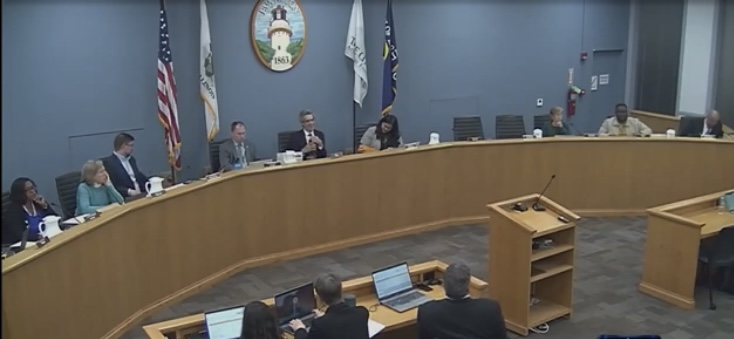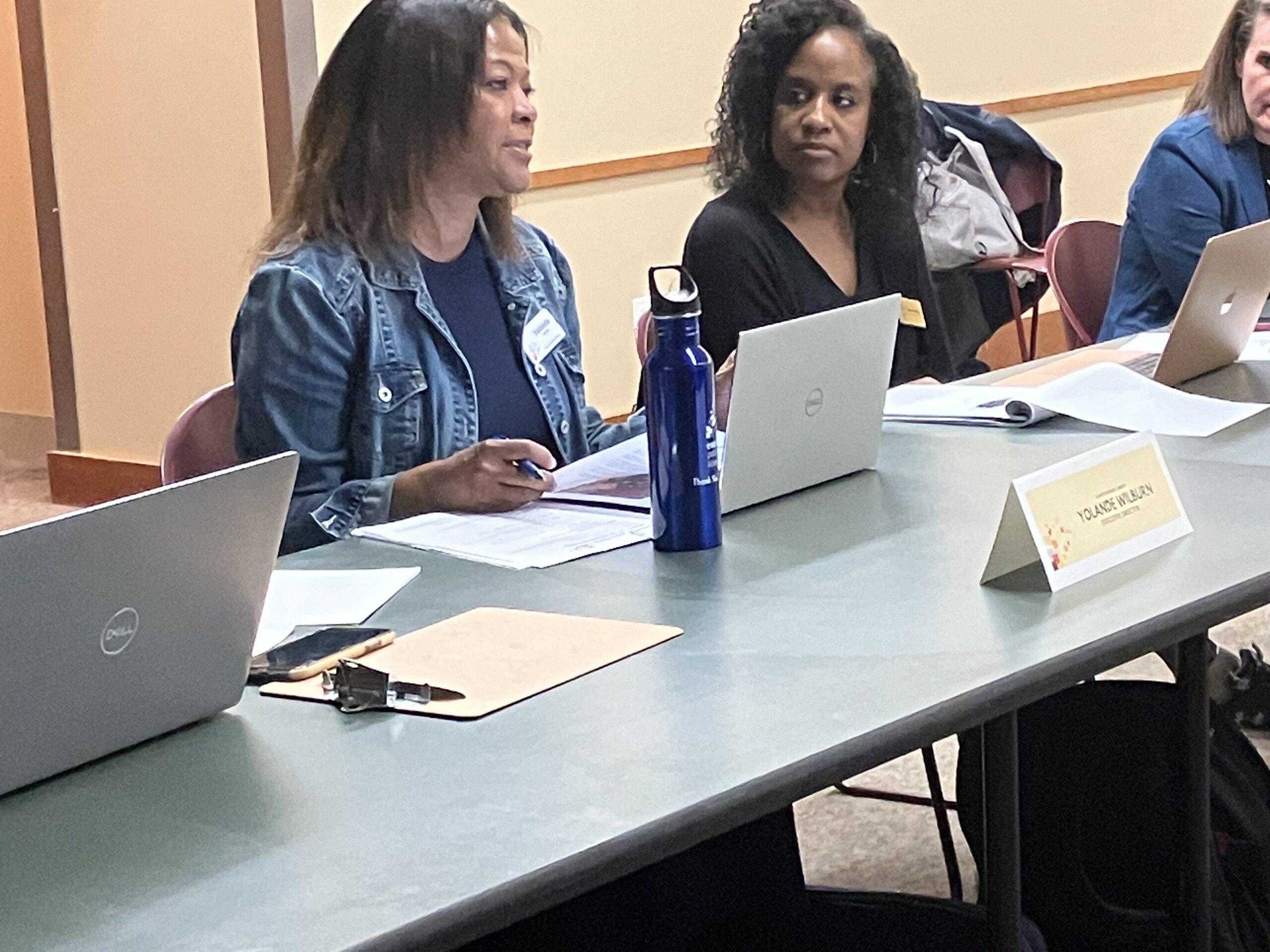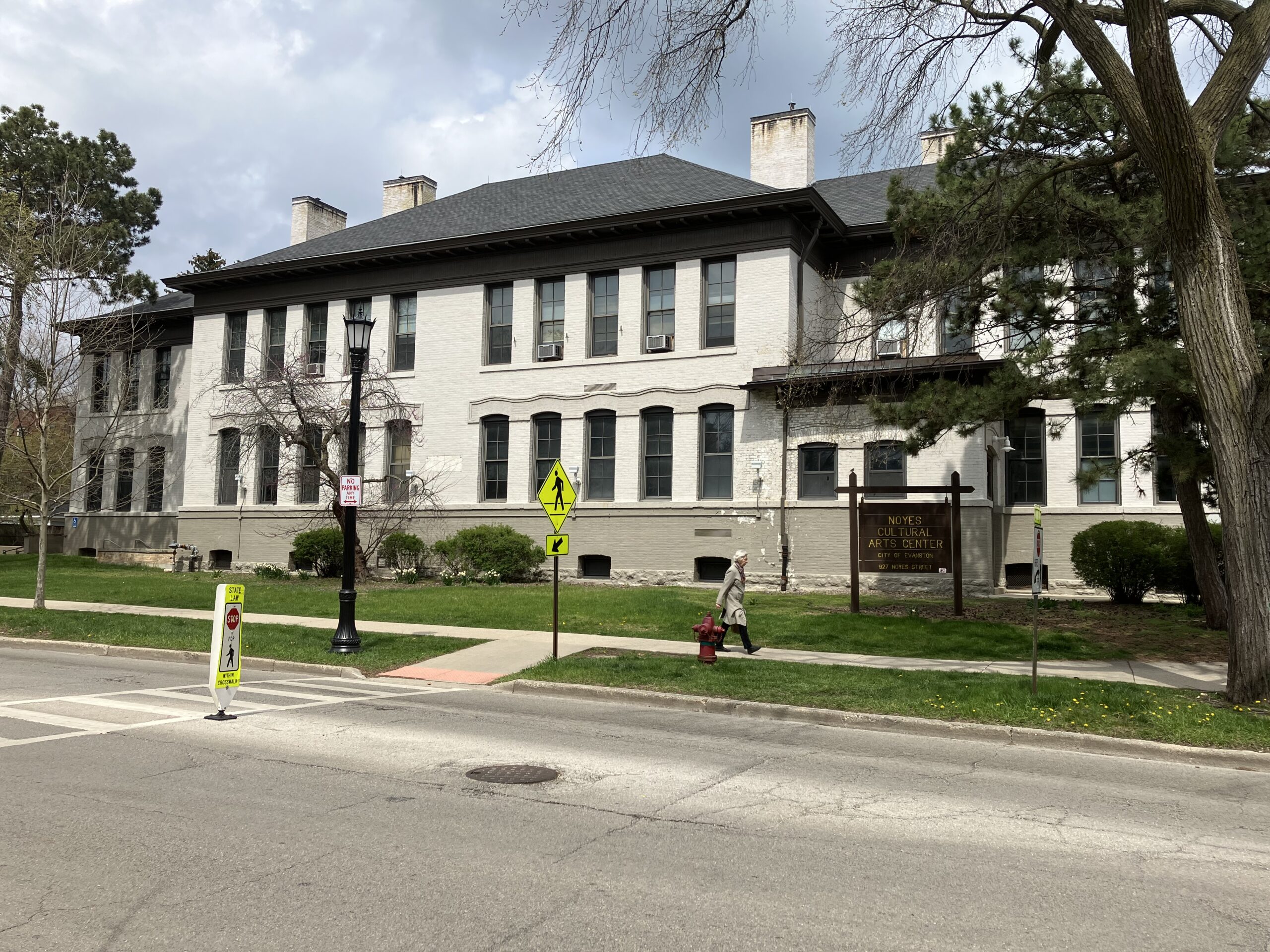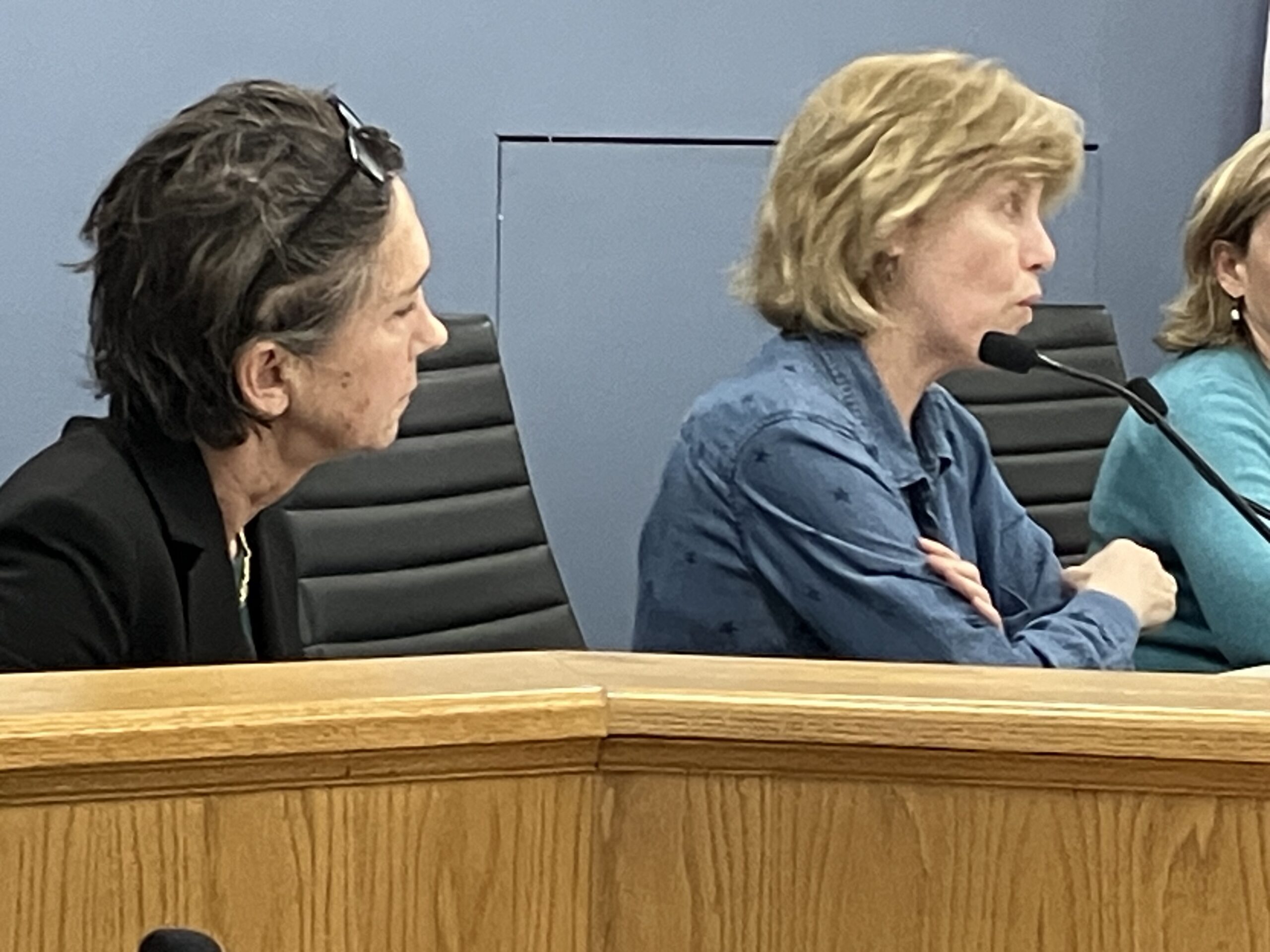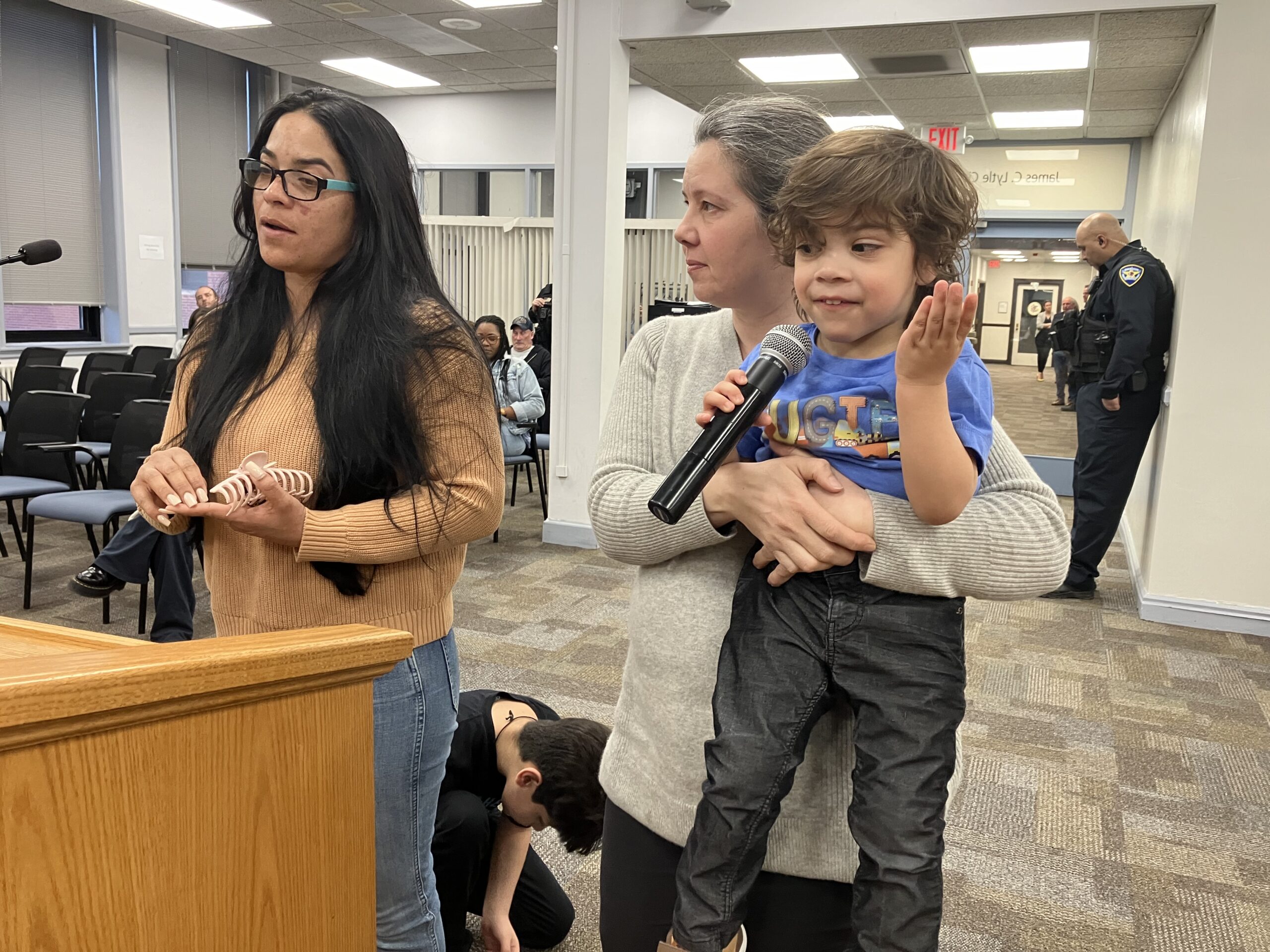By Bob Seidenberg
A homeless advocacy group’s controversial bid to establish the area’s first permanent shelter for the homeless moved a step closer May 8 to a final vote.
Evanston City Council members voted 6-2 at their regular meeting to introduce approval of Connections for the Homeless request for special zoning at the Margarita Inn, 1566 Oak Ave.
A final vote on the issue is expected at the council’s next meeting, May 22.
Voting in support were Council Members Kristian “Krissie” Harris (2nd Ward), Melissa Wynne (3rd Ward), Jonathan Nieuwsma (4th Ward), Eleanor Revelle (7th Ward), Devon Reid (8th Ward) and Juan Geracaris (9th Ward).
Voting against were Clare Kelly (1st Ward) and Thomas Suffredin (6th Ward). Bobby Burns (5th Ward) didn’t vote.
Conflict of interest issues
Revelle and Reid voted in favor after addressing questions about possible conflict of interests concerning their participation.
Revelle, along with her husband, William, is listed in Connections’ literature as a major donor, those making a contribution of $25,000 or more.
Council members respond to conflict of interest concerns
Before council discussion of an amendment in favor of moving forward on the issue, she asked Alexandra Ruggie, the city’s deputy attorney, whether she had a conflict of interest as “alleged before.”
The RoundTable reported last year that Connectiions had provided financial assistance to Reid to help him avoid eviction from his south Evanston home.
Connections said the assistance was in line with its mission to fund individuals who seek assistance and meet program guidelines.
At the May 8 meeting, Reid acknowledged he had received rental assistance from Connections. But he said he did not see that as conflict of interest and “I plan to vote on this item tonight.”
“I do not intend for my participation or my vote to be a distraction from what is really important here,” he said. “But I also intend for my vote to stand up for any future council member who may be low income or in their term becomes low income and needs rental assistance. That should not disqualify a council member from participating in the system.”
He asked, for example, if he or some future council member sought services for mental health, would they be banned from voting on anything related to groups providing that service.
Connections is seeking special use approval to establish a rooming house at the Margarita Inn, which it has a contract to purchase and operate a 46-room facility for up to 70 residents.
Some residents living close to the site have raised concerns about a spike in police calls in and around the facility and other incidents since the Margarita Inn began operating as shelter in the midst of the pandemic in 2020.
‘Guardrails and guidelines in place’
Nieuwsma urged council members to move forward on introducing the ordinance, proposing nearly all of 17 conditions that had not been approved at the city Land Use Commission meeting April 26 after that group had deadlocked 3-3 over the issue.
A number of the conditions – criminal background checks, emergency access to the building for first responders, onsite behavioral mental and medical health care, greater access to the building for police personnel – are in line with concerns neighbors have raised about the building about lack of safeguards at the building.
Nieuwsma argued this is the time for council members to act on the issue.
He acknowledged that the issue is due to nationwide factors “well beyond our control. We can’t fix income disparity. We can’t fix affordable housing on our own here in Evanston. We can’t fix our nationwide or national health care system. What we can do is address the problem here in town, because this is where the problem exists.”
At the same time, he said, “we need to make sure that we are constructing a regulatory oversight that holds the operators of the facility accountable for doing it right.”
“Connections is the local experts on this. They’ve been dealing with the unhoused population for decades.”
Meanwhile, he said, “we’re putting in guardrails and guidelines in place.”
But Kelly, one of two no votes on the issue, said the city’s isn’t ready to move forward.
She estimated the proposal lacks up to 90% of the recommendations that housing expert Daniel Lauber had advised the city to include in an operating agreement for the facility.
In a Feb. 21 essay for the RoundTable, Lauber asserted the proposed Evanston ordinance is missing key elements that belong in nearly every licensing ordinance for housing providers, such as specifying minimal staffing requirements for Connections, including qualifications and training, spelling out in detail what the license application includes, and listing exactly what actions violate the ordinance and the penalties for violations.
Kelly said Lauber’s recommendations go beyond “a really weak detailed explanation about the staff who’s there [at the facility] and who’s awake.”
Rather, she said, his recommendations are “much more detailed about nuisances – not just adjacent [to the facility] but 500 feet from the Margarita … and they’re all very serious in terms of protections for residents.”
Connections plan for permanent homeless shelter at Margarita advances to final vote
